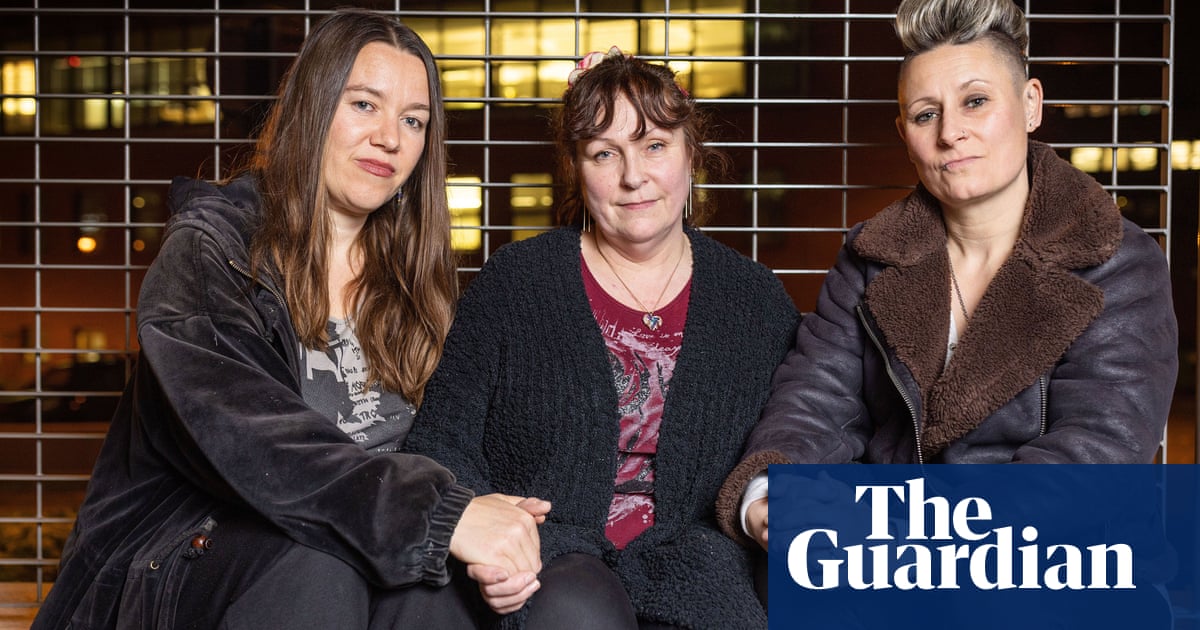
hen was 12, I’d go to batmitzvah classes every Friday after school, and the highlight was breaktime, when we would sit crosslegged on the carpet while a formidable lady called Suzanne told us that day’s plot of Neighbours. One day she entered the room with unusual solemnity. She said there had been a terrible bomb at Lassiters and everybody had died, and Neighbours had finished forever. She waited a minute or so before breezily admitting she’d missed the lunchtime showing and so had no idea what had happened, but the joke was lost on us, a gasping room of pubescent Jews for whom Neighbours was our true religion. My main memory of that day is the thought: I have missed something important, we have suffered great loss and time cannot go backwards. Anyway hi, I’m back from maternity leave, I trust nothing has changed?
No, no I jest, I jest! My sense of taste and smell may be compromised, but my sense of humour, never. Pandemic. There’s a pandemic on. Instead of the calm birth and relaxing maternity leave I had planned, littered with pretty cakes and galleries and bawdy chatter about tits, I left work as lockdown started, had a baby at its bitter height and was sent home the same day to wait for death or Ocado, whichever came first.
In that dreamlike way that memories bleed together when a brain is very tired, one result of having a baby over lockdown was that for me his progress became inextricably linked to that of the coronavirus. With no face-to-face midwife appointments, I quickly became accustomed to asking my questions of the internet instead, and inevitably these two major incidents of life and death in my otherwise action-less life blended until I could not Google one (“WHEN BABY SIT UP”) without the other (“Second lockdown likelihood”). The tabs open on my phone at dawn today were “Trump labelled superspreader” and “23 WEEK BABY NORMAL”, and occasionally, like my eyes, the two subjects will cross. “Your baby is starting to understand the idea that objects exist even when he can’t see them,” one baby site tells me, “so he will love watching things appear, disappear, and appear again.” On I toggle.
Similarly, I started to notice a blurring in the language of my six-year-old and that of the rolling news. At school last year, the theme of their lessons was “resilience”, a word she found useful to describe her efforts to climb up to the biscuit cupboard and her refusal to back down in an argument about tights. It was in March that I started hearing about resilience from government officials, too, and across the news, referring to key workers, and businesses, and Boris Johnson, and students, democracy, the housing market, the drug trade, humanity. As the pandemic unrolled, no political address was complete without a reference to this magical quality, something presented as uniquely British, a state we appear to have been stockpiling alongside our pasta, just in case.
Perhaps, again, it’s because I am very tired (this baby is Thatcher-like in his dismissal of sleep, and at night I jolt awake in the grey light to find it’s been 20 minutes since the last feed and yep, it appears I’ve bought another 3am piece of folk art), but this repetition of a word has made it shiftshape, and suspect. Resilience, a quality usually discovered after we are forced into a corner, has been romanticised, the word used so often it is now faded and pinkish grey. And increasingly insulting. Johnson congratulates the UK for our resilience, while continuing to make choices that will negatively impact a generation of children whose resilience, like all of ours, is largely set before birth and in the first thousand days of life; people who grew up with deprivation and instability are less likely to be resilient than those who were born into luck.
When my daughter returned from her first school assembly on resilience, I sensed a change of direction in adult intention, an invisible hand inside Britain’s shared Google Doc hurriedly deleting previous edits. Such as the right wing obsession with a “snowflake generation”, written off as wet and feeble, liable to dissolve if they heard a word they didn’t like. Or those told they could be whatever they wanted, just as long as they wanted it enough. Strike that, reverse it – quickly now, teach kids resilience, increase their anxiety and lower their hopes. Do I sound angry? Apologies. It’s my resilience showing.
Right at the point the resilience speeches began, this tiny stranger moved into our house, so we have spent the last six months politely getting to know him, levering his froggy limbs into his sister’s old babygrows, and trying to sound confident as we tell him this is not how life will always be. On Wednesday I had to feed him during the first Zoom meeting with my co-workers. While I attempted to shield my nipple from their many webcams, the cat walked down the length of my baby and caused him to loudly fart. I reassured myself then, that this is not how life will always be. I tried to sound confident.












